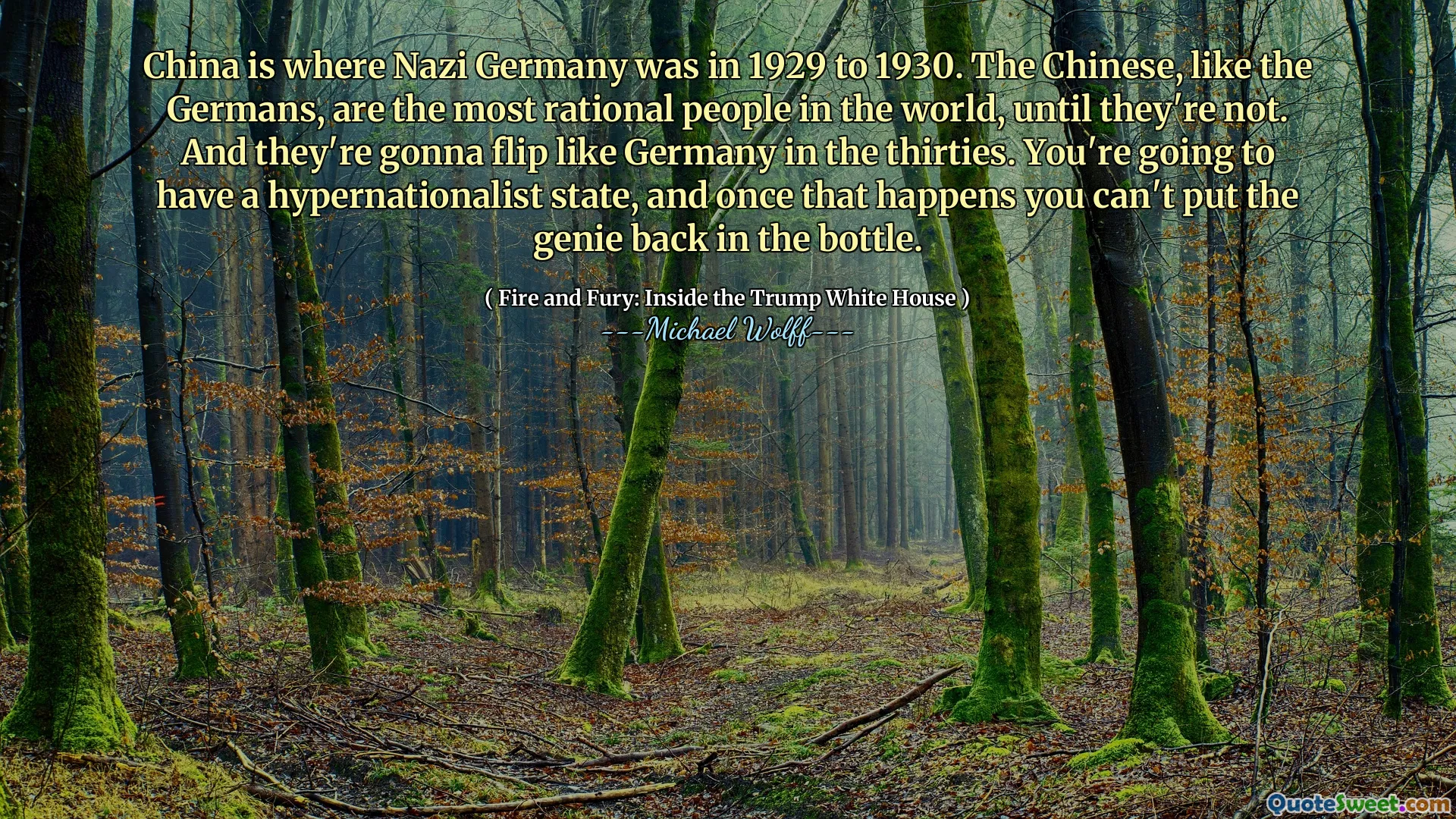
China is where Nazi Germany was in 1929 to 1930. The Chinese, like the Germans, are the most rational people in the world, until they're not. And they're gonna flip like Germany in the thirties. You're going to have a hypernationalist state, and once that happens you can't put the genie back in the bottle.
In Michael Wolff’s book, "Fire and Fury: Inside the Trump White House," he draws a parallel between China in the present day and Nazi Germany in the late 1920s. He suggests that while the Chinese people are generally logical and rational, there is potential for a dramatic shift in their national mood, similar to what occurred in Germany during the rise of hypernationalism. This implies that, under certain conditions, they could turn toward extreme nationalism.
Wolff warns that when such a transformation takes place, it becomes irreversible. He emphasizes that the emergence of a hypernationalist state in China could lead to consequences that would be challenging to manage or control, highlighting the fragile nature of national sentiments and the risks involved in allowing nationalism to escalate unchecked.











